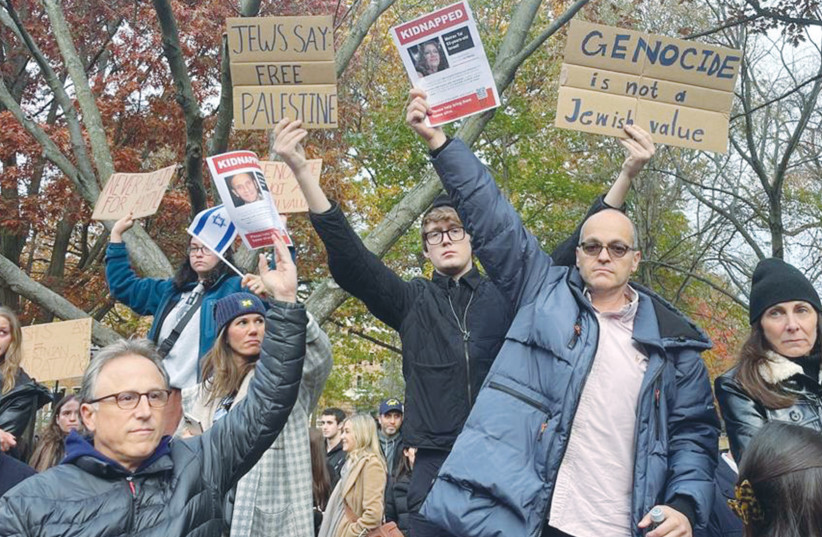Fifty-eight percent of Jewish students in the highest quartile of US colleges expressed significant concern about antisemitism coming from the political left, surpassing concerns about right-wing antisemitism which stood at 16%, according to a revealing study conducted by Brandeis University.
This study, titled "In the Shadow of War: Hotspots of Antisemitism on US College Campuses," was authored by Graham W. Wright, Sasha Volodarsky, Shahar Hecht, and Leonard Saxe of the Maurice and Marilyn Cohen Center for Modern Jewish Studies.
The research, which categorized fifty-one US universities into quartiles based on levels of antisemitic hostility, uncovered a stark disparity in the experiences of Jewish undergraduates. While 49% of students in the highest hostility quartile reported significant antisemitic encounters, only 10% in the lowest quartile shared similar experiences. Furthermore, 24% of students from the most hostile schools reported personal harassment due to their Jewish identity, compared to 14% in the least hostile environments.
The survey methodology involved an online survey of Jewish undergraduates who had applied to the Birthright Israel program, conducted from November 19 to December 11, 2023. Despite a modest response rate of 8.4%, the study provides insightful findings about the broader campus climates.
Besides the political dimension, the study also found that hostility towards Israel mainly came from fellow students rather than faculty or university administrators. In the most hostile environments, 79% of respondents faced hostility from other students, while 30% encountered it from faculty, and 15% from administrators.

Most Jewish students still feel safe on campus
Despite these alarming statistics, a majority of Jewish students still felt a sense of safety and belonging on campus. In the most hostile schools, about three-quarters of respondents reported feeling safe and comfortable.
The study, while offering crucial insights, acknowledged its limitations, including potential biases due to the sample comprising only Birthright Israel applicants and the small sample sizes from individual schools.
The study also shed light on the overall sense of safety and belonging among Jewish students. In the least hostile quartile, almost 90% of respondents felt a strong sense of safety, comfort, and belonging. This contrasts with the highest hostility quartile, where despite the challenges, three-quarters still reported feeling somewhat or very much safe and comfortable, underscoring a complex dynamic between perceived hostility and personal well-being.
